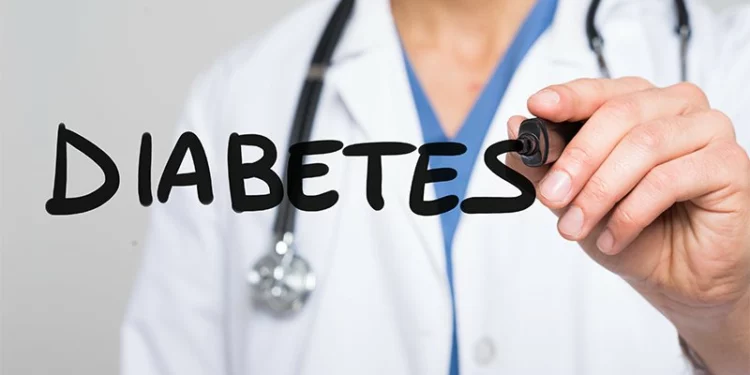Presently, in Nigeria, available statistics indicate that about six million adults are living with diabetes mellitus. As bad as that situation is, the real challenge is that most of them are without adequate healthcare and the awareness needed to stay healthy.
In 2007, the United Nations’ General Assembly adopted resolution 61/225 that set aside 14 November as World Diabetes Day to draw attention to this debilitating disease. For this year, the world body chose “Access to diabetes care”, as it was last year, and will be again in 2023, highlighting the importance of prevention and response efforts.
The World Health Organisation (WHO) Regional Director for Africa, Dr Matshidiso Moeti, in his message to mark the event this year, said Africa’s diabetes statistics illustrate the depth of the challenge: 24 million adults are currently living with diabetes, with that number predicted to swell by 129 per cent to 55 million by 2045. Last year, Diabetes mellitus took the lives of 416 000 people on the continent, and is forecast to become one of the leading causes of death in Africa by 2030.
We recall that at the 75th World Health Assembly in May this year, World Health Organisation (WHO) Member States supported the creation of the first global targets for diabetes by 2030, as part of recommendations to strengthen and monitor diabetes responses within national Non communicable diseases (NCD) programmes. These include that 80 per cent of people living with diabetes will be diagnosed and have good control of their glycaemic levels and blood pressure; 60 per cent of those older than 40 will be receiving treatment with statins; and 100 per cent of people with Type 1 diabetes will have access to affordable insulin and blood glucose self-monitoring.
Similarly, at the 72nd WHO Regional Committee for Africa in August 2022, efforts to improve services to prevent and manage diabetes care, and achieve Universal Health Coverage, saw Ministers of Health from the continent adopt the PEN-Plus regional strategy. This is focused on integrating outpatient care for severe and chronic NCDs at first-referral level health facilities.
It is estimated that among 537 million adults between 20 and 79 years, 1 in 10 are living with the disease. It has been projected that this number will increase to 643 million by 2030 and 784 million by 2045. Also, more than 4 in 5 (81 per cent) adults with diabetes reside in low- and middle-income countries, pointing to diabetes as cause of 6.7 million deaths in 2021 at 1 in every 5 seconds. It is also estimated that 541 million adults are suffering from Impaired Glucose Tolerance (IGT) which puts them at high risk of type 2 diabetes.
In Africa, 24 million people suffer from diabetes, 61 million in Europe, 73 million in Middle-east and North Africa, South East Asia 90 million, Western Pacific 206 million, South and Central America 32 million and North America and Caribbean 51 million.
However, the cost implication of managing the disease reveals that diabetes requires at least $966 billion in health expenditure, which is a 316 per cent increase over the past 15 years. Experts aver that, in addition to this, part of the management procedure of the disease is knowing its risk factors which are presently not certain. At the level of conjecture, having a parent with the disease or a brother or sister increases the chances of one having the disease. Type 1 diabetes can be developed at any age but most likely in childhood, teen years or as a young adult. It presently has no form of prevention.
For type 2, according to experts, people are at risk if they have pre- diabetes characteristics like being overweight, are 45 years or above, have a parent, brother, or sister with type 2 diabetes, are physically active less than 3 times a week among others. With type 2 diabetes, it is preventable and also can be delayed through lifestyle changes.
In terms of gestational diabetes, people are at risk if pregnant and had gestational diabetes during a previous pregnancy, gave birth to a baby who weighed over 9 pounds, are overweight or above 25 years old, have a family history of type 2 diabetes, have a hormone disorder called Poly-cystic Ovary Syndrome (PCOS) among others. Gestational diabetes will, most of the time, be cured after the baby is born. However, it raises risks for type 2 diabetes in future.
This newspaper is of the opinion that the federal government should address the issue of inadequate healthcare for sufferers of the disease as well as create enlightenment campaign to control it.
In Nigeria, as in most African countries, lack of access to basic care is posing a challenge where diabetes is concerned. So, also, is the access to insulin and when unsubsidised, it makes worse the case for most people battling with the ailment. Lack of enlightenment and correct information as regards the disease is also disturbing.
In our considered opinion, one effective way of combating this disease and others like it, is to put in place adequate health insurance policy that is easily affordable. This is important because the high cost of healthcare delivery in the country is giving rise to deaths that would otherwise have been prevented.



